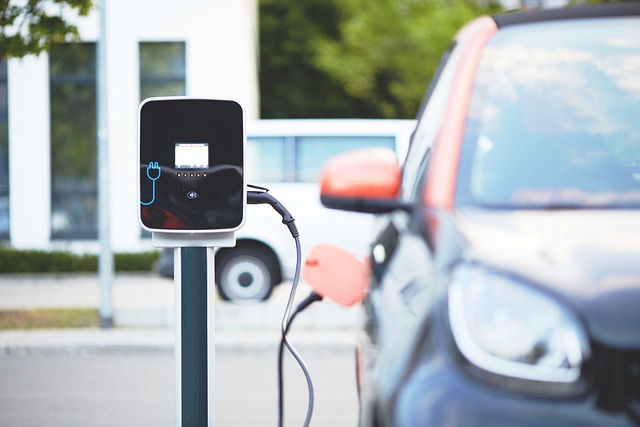Electric Golf Carts Transform Sport and Course Experience
Golf carts have evolved far beyond simple course transportation, with electric models leading a transformation that impacts how players experience the sport. Modern electric golf carts combine advanced technology, environmental consciousness, and enhanced performance to reshape golf culture. From smart connectivity features to sustainable power systems, these vehicles are becoming sophisticated platforms that enhance player comfort and course management while supporting the sport's evolution toward greater accessibility and environmental responsibility.

How Electric Golf Carts Are Shaping the Future of the Sport
Electric golf carts are fundamentally changing how golfers interact with courses and experience the game. The shift from gas-powered to electric models has introduced quieter operation, allowing players to better appreciate the natural environment and maintain course tranquility. GPS integration and course management systems built into modern electric carts provide real-time yardage information, hazard alerts, and pace-of-play tracking that helps golfers make more informed decisions.
The environmental impact of electric carts aligns with golf’s growing sustainability initiatives. Courses reduce their carbon footprint while eliminating fuel storage and maintenance concerns associated with gas engines. This shift supports golf’s appeal to environmentally conscious players and helps courses meet green certification standards. Electric carts also enable innovative features like solar charging stations and energy recovery systems that further enhance their ecological benefits.
Key Features to Expect in 2025 Golf Cart Models
Golf cart manufacturers are incorporating advanced technology that transforms these vehicles into comprehensive mobility solutions. Lithium-ion battery systems in 2025 models provide extended range capabilities, often exceeding 36 holes on a single charge with faster charging times. Smart dashboard displays offer touchscreen interfaces that integrate weather updates, course information, and even food and beverage ordering systems.
Enhanced safety features include automatic braking systems, hill-hold technology, and improved stability control that makes carts safer on challenging terrain. USB charging ports, Bluetooth connectivity, and climate control systems create a more comfortable experience for players. Some models feature regenerative braking that extends battery life while providing smoother deceleration on downhill sections.
Premium models incorporate advanced suspension systems that improve ride quality across varied course conditions. LED lighting packages enhance visibility during early morning or evening rounds, while customizable seating options accommodate players of different sizes and mobility needs.
Trends in Design and Technology for Golf Carts in 2025
Golf cart design is embracing both aesthetic appeal and functional innovation. Sleek, automotive-inspired styling reflects modern preferences while maintaining the practical requirements of course use. Manufacturers are exploring lightweight materials that improve efficiency without sacrificing durability or safety standards.
Connectivity features are becoming standard, with many carts offering integrated Wi-Fi hotspots and mobile app compatibility. These systems allow courses to communicate directly with players, providing updates about pace of play, weather conditions, and promotional offers. Some advanced models feature autonomous capabilities that can return carts to designated areas or follow predetermined paths.
Modular designs allow for customization based on specific course needs or player preferences. Removable components enable easier maintenance while allowing seasonal modifications. Color customization options and premium material choices reflect golf’s tradition of personal expression while embracing modern manufacturing capabilities.
| Cart Model | Manufacturer | Key Features | Price Range |
|---|---|---|---|
| Club Car Tempo | Club Car | Lithium batteries, GPS ready, USB ports | $8,000 - $12,000 |
| Yamaha Drive2 | Yamaha | QuieTech EFI, independent suspension | $7,500 - $11,500 |
| E-Z-GO RXV Elite | E-Z-GO | Advanced battery system, premium seating | $8,500 - $13,000 |
| Icon i60 | Icon EV | Luxury features, extended range, smart connectivity | $9,000 - $14,000 |
Prices, rates, or cost estimates mentioned in this article are based on the latest available information but may change over time. Independent research is advised before making financial decisions.
The integration of artificial intelligence and machine learning capabilities enables carts to adapt to individual player preferences and course conditions. Predictive maintenance systems alert course managers to potential issues before they impact cart availability. Energy management systems optimize battery performance based on usage patterns and environmental conditions.
Courses are also exploring fleet management systems that track cart locations, monitor battery levels, and optimize maintenance schedules. These systems reduce operational costs while ensuring consistent cart availability for players. Some facilities are implementing dynamic pricing models that adjust cart fees based on demand and course conditions.
The future of golf carts extends beyond traditional course boundaries, with many models designed for community transportation and recreational use. This versatility increases their value proposition while supporting the golf industry’s efforts to attract new players and maintain engagement with existing ones.
Electric golf carts represent a significant evolution in golf equipment that enhances player experience while supporting environmental sustainability. The combination of advanced technology, improved performance, and innovative design creates opportunities for courses to differentiate their offerings and provide enhanced value to players. As these trends continue developing, golf carts will likely play an increasingly important role in shaping how people experience and enjoy the sport.




